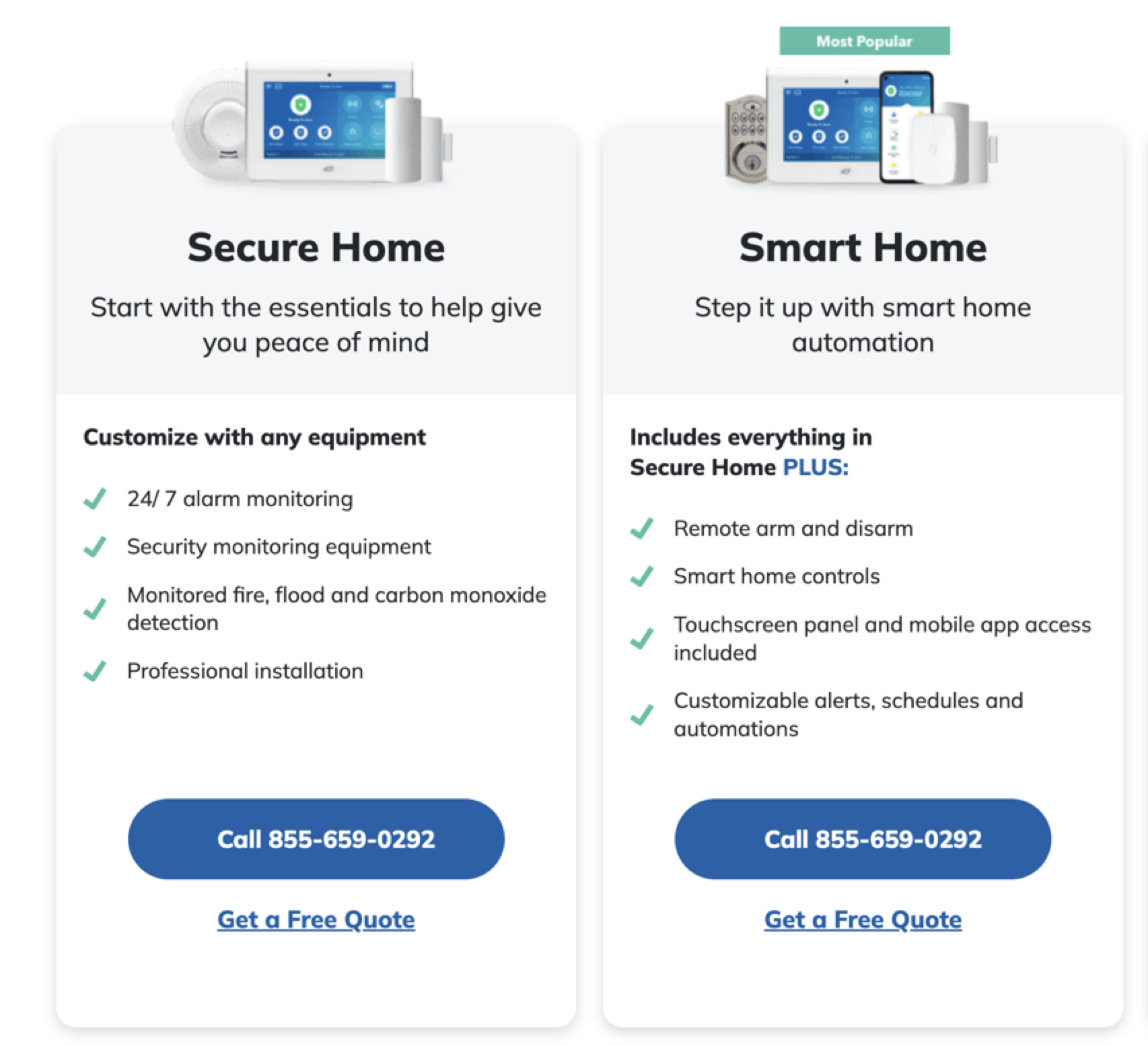-
 Published: Jan 26, 2023
Published: Jan 26, 2023
-
 8 min. read
8 min. read
-
 Abbey Stephan
Abbey Stephan Lead Editor
Lead Editor
- Abbey is a digital marketer, copywriter, and lead editor. She has worked on over 200 client campaigns and WebFX, and she specializes in marketing strategy analysis and industry-specific digital marketing plans. Outside of writing and editing, you’ll likely find her taking pictures of her cat, making a new playlist, or tending to her houseplants.
The sales team is the backbone of any business. They are responsible for finding leads, nurturing them to conversion, and building a solid client base. Each team member has a specific role, job description, and set of responsibilities.
What are the different sales roles? How does each one impact your sales team?
Answering these questions can help you find your ideal position or create a team that drives conversions and profit. Keep reading to break down the types of sales roles, review each sales role and responsibility, and see some examples in action!
Don’t miss our Marketing Manager Insider emails!
Join 200K smart marketers for the hottest marketing news and insights in your inbox.
Inline Subscription Form
“*” indicates required fields


Types of sales roles
Finding the proper role can set you and your team up for success. Each position has a different area of expertise, and each team member should have a job that works with their interests and skills.
For example, if you like working face-to-face with customers, you might not want a position that solely handles technical contracts. Or, if you prefer technical features, you might not grow in a job that requires you to look for leads.
We can break down sales roles and responsibilities into the following categories:
- Strategy: Many sales positions focus on targeting audiences and finding new leads. These salespeople evaluate the company’s approach to determine where their leads are coming from and how to pursue more suitable options.
- Customer satisfaction and accounts: Once you onboard customers, they may have a dedicated account manager or sales representative that can monitor their activity and information. These salespeople work closely with clients and build lasting relationships.
- Technical operations: These sales support roles handle technical information and client questions. They have an in-depth understanding of product and service specifications and help teams build out resources like demos and presentations.
- Managerial: Leadership roles ensure that the sales team runs smoothly. These roles often have “director” or “executive” in the title to designate their position concerning the rest of the group.
Depending on the team, one person may handle more than one role. Or, you may have multiple people handling the same job for your clients. A well-balanced sales team ensures a consistent approach to client work.
9 different sales roles
Below are nine different types of sales roles that most companies employ:
- Lead development representative (LDR)
- Sales development representative (SDR)
- Business development representative (BDR)
- Account executive (closer)
- Sales engineer
- Sales operations
- Sales manager
- Director of sales
- Sales consultant
Note that these sales roles and responsibilities might vary depending on the company and sales trends. For example, depending on the company size, the same team could handle internal and external sales. Understanding each role will help you build a team that suits your company.
Read about each role below to optimize your team and learn how to close more sales effectively.
1. Lead development representative (LDR)
Position level: Entry
LDRs perform top-of-the-funnel tasks to move interested prospects into the sales process. They find interested leads, connect with them, and move them further down the sales funnel.
LDRs focus on inside sales or those where prospects have already expressed interest in the company. Once they get in touch and give initial information, the LDR will pass the lead to a closing sales representative.
Depending on the company, their communications might look like this:
- Reaching out to a viewer who downloaded content
- Responding to contact forms
- Prospecting on social sites like LinkedIn
When a client fills out a contact form like the following example, the LDR will respond:

This entry-level position is a great starting point for any sales career, especially for those interested in customer communications. These jobs often require limited experience, and there is a clear promotion path to higher-up sales positions with more responsibility.
2. Sales development representative (SDR)
Position level: Entry/mid-level
SDR focuses on researching and finding new leads for the sales team. While LDRs focus on finding qualified leads and moving them through the sales funnel, an SDR will turn marketing-qualified leads into sales-qualified leads.
As an SDR, you will need to:
- Understand audience targeting
- Reach out to prospects to attract them to your company
- Research prospects and turn them into qualified leads
While an LDR focuses on inbound clients, an SDR will focus on outreach and contacting leads. This outward approach requires strong communication skills and a clear understanding of customer needs.
3. Business development representative (BDR)
Position level: Entry/mid-level
BDRs focus on creating new business opportunities through outward approaches and connections. They focus on adding new contacts to the sales pipeline and building relationships with cold clients.
A BDR is responsible for the following:
- Turning cold leads to warm ones
- Understanding individual needs and researching pain points
- Finding more targeted leads for closing sales reps
BDRs have some overlapping focus with SDRs, but there is a particular place for each. An SDR will have more leads, but a BDR may have fewer, higher-quality leads for closing sales reps.
4. Account executive (closer)
Position level: Mid-level
The account executive moves leads from the top-and mid-funnel stages to closing. When the LDRs and SDRs find and capture leads, they push them to the account executive to close the sale.
An account executive communicates minute details and proposals with the client. Some of their tasks could include:
- Creating budgets and payment plans for clients
- Crafting proposals to convert prospects
- Outlining product or service features and benefits
- Building trust and relationships with clients
They may also oversee training and work with representatives to create a fluid process for converting leads.
5. Sales engineer
Position level: Managerial
A sales engineer combines customer relationship management with technical expertise. These experts are more process-oriented, and they often work with closers or other representatives.
These team members perform the following tasks and more:
- Create detailed presentations and breakdowns for how products and services work
- Collaborate with other team members to provide more detailed information
- Craft technical documents and contracts
This position works closely with other salespeople, but they may connect with clients to answer questions and make sure they understand the process. For example, ADT has this section on their website outlining their products:

The sales engineer would have more information and details about each package that they could share upon request.
6. Sales operations
Position level: Managerial
Sales operations employees support the sales staff rather than trying to sell products or services. They optimize the process, technology, and resources so other sales team members can better find and serve clients.
This position requires organization and communication skills. Some tasks for this position include:
- Determining how many reps to hire
- Incentivizing salespeople and tracking their progress
- Evaluating and improving the sales process
- Communicating with the sales manager on behalf of the reps
7. Sales manager
Position level: Managerial
Sales managers lead different teams of SDRs, account executives, and operations managers. They are responsible for creating and maintaining large-scale operations and onboarding team members.
As a sales manager, you could expect to:
- Hire, train, and onboard new sales representatives
- Track employee progress
- Handle promotions and raises
- Assigning sales territories and goals
A sales manager needs to have some background in sales to understand their employees’ perspectives. They also need strong leadership qualities to help them move their team forward.
8. Director of sales
Position level: Managerial
A director of sales resides over one or multiple sales managers to manage the entire sales department. The director of sales works with sales managers to:
- Project and evaluate sales quotes
- Evaluate revenue margins
- Assess team performance
The director of sales will also report to other executives and stakeholders to detail all earnings and closed deals. They have a more strategic position than sales managers and make sure that the team is meeting their goals to earn revenue for the company.
9. Sales consultant
Position level: Managerial
A sales consultant is an outsourced position that gives sales teams guidance for increasing their lead frequency and quality. They create strategies for promoting goods and services that meet the company’s goals and customer needs.
Sales consultants can:
- Network with sales teams and their clients
- Create pitches and campaign plans
- Evaluate sales approaches
Sales consultants often need some experience in sales before they can reach the consulting level.
Our digital marketing campaigns impact the metrics that improve your bottom line.
See Our Approach
$10 billion

24 million

7.14 million
Pair sales roles with digital marketing solutions
Once you’re familiar with the different sales roles, you can start optimizing your team. If you want to broaden your sales reach, look no further than digital marketing solutions from WebFX.
For over 29 years, we have helped clients drive more revenue and improve their lead-capture techniques. Our digital marketing services can match your sales team goals and help you find more clients online.
View our case studies to see our work, and call 888-601-5359 to learn how digital marketing can optimize your online presence for conversions!
-
 Abbey is a digital marketer, copywriter, and lead editor. She has worked on over 200 client campaigns and WebFX, and she specializes in marketing strategy analysis and industry-specific digital marketing plans. Outside of writing and editing, you’ll likely find her taking pictures of her cat, making a new playlist, or tending to her houseplants.
Abbey is a digital marketer, copywriter, and lead editor. She has worked on over 200 client campaigns and WebFX, and she specializes in marketing strategy analysis and industry-specific digital marketing plans. Outside of writing and editing, you’ll likely find her taking pictures of her cat, making a new playlist, or tending to her houseplants. -

WebFX is a full-service marketing agency with 1,100+ client reviews and a 4.9-star rating on Clutch! Find out how our expert team and revenue-accelerating tech can drive results for you! Learn more
Try our free Marketing Calculator
Craft a tailored online marketing strategy! Utilize our free Internet marketing calculator for a custom plan based on your location, reach, timeframe, and budget.
Plan Your Marketing Budget
Table of Contents
- Types of sales roles
- 9 different sales roles
- 1. Lead development representative (LDR)
- 2. Sales development representative (SDR)
- 3. Business development representative (BDR)
- 4. Account executive (closer)
- 5. Sales engineer
- 6. Sales operations
- 7. Sales manager
- 8. Director of sales
- 9. Sales consultant
- Pair sales roles with digital marketing solutions

Proven Marketing Strategies

Proven Marketing Strategies
Try our free Marketing Calculator
Craft a tailored online marketing strategy! Utilize our free Internet marketing calculator for a custom plan based on your location, reach, timeframe, and budget.
Plan Your Marketing Budget
What to read next





